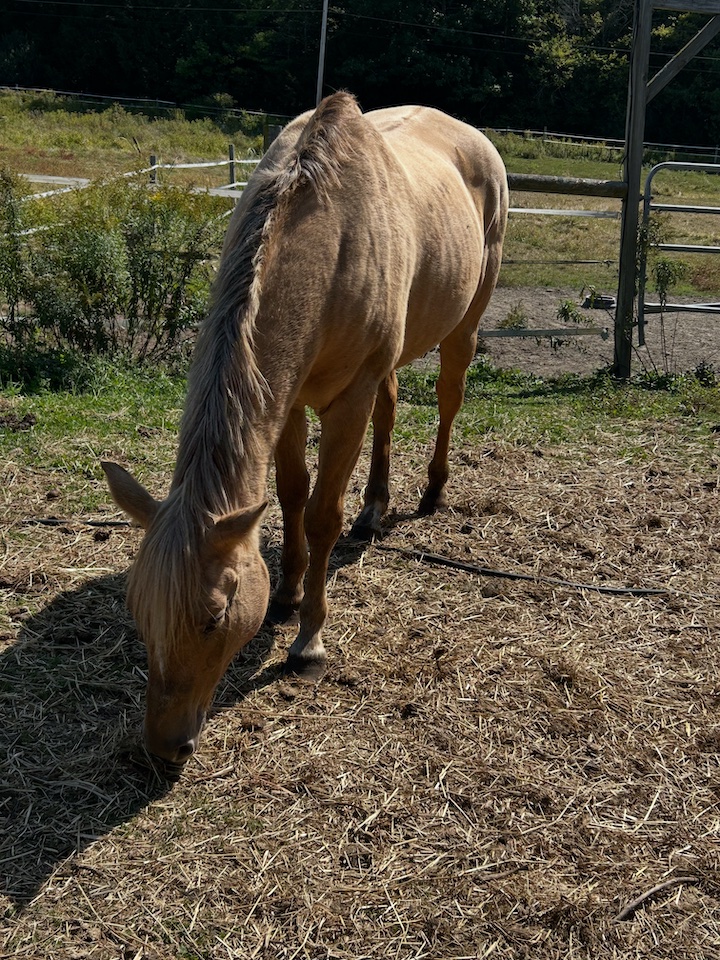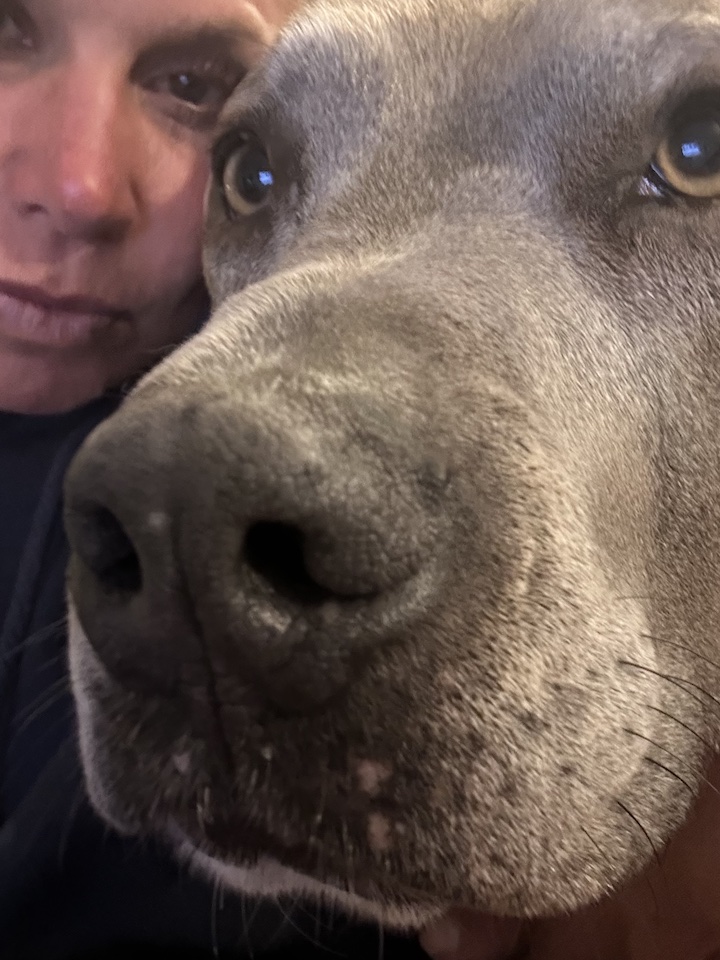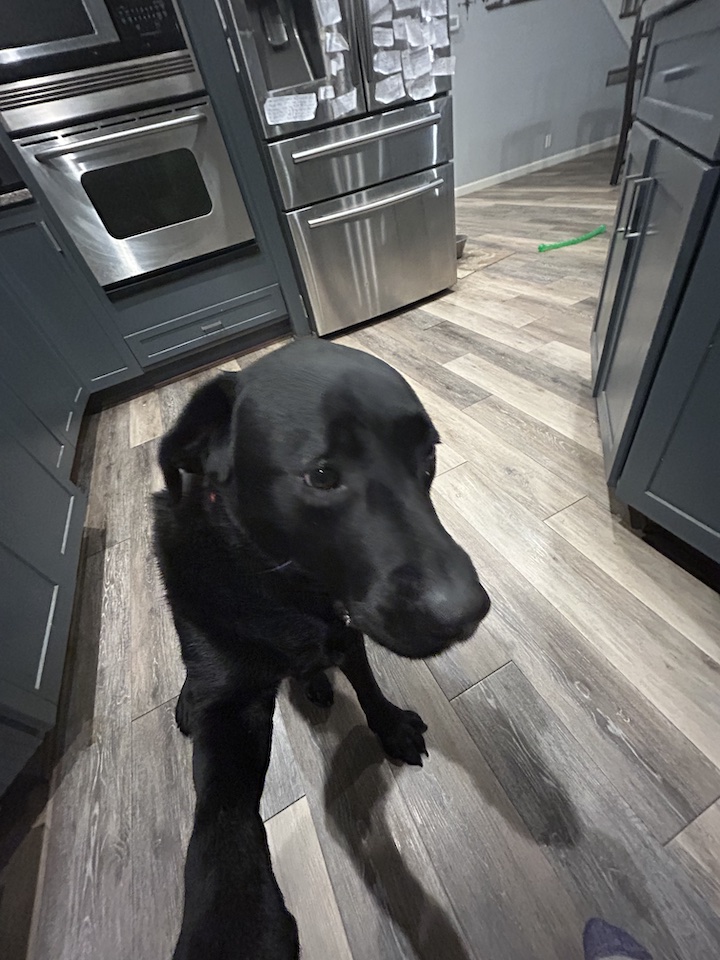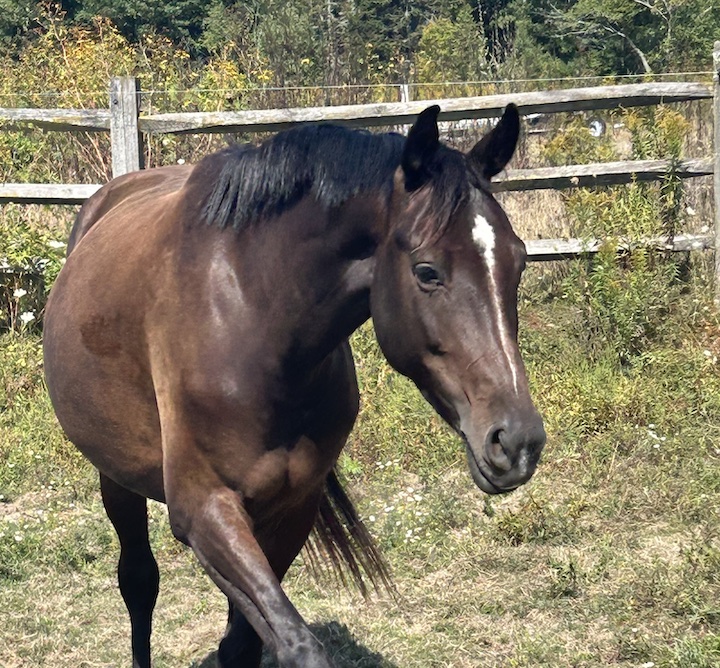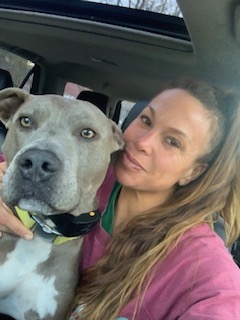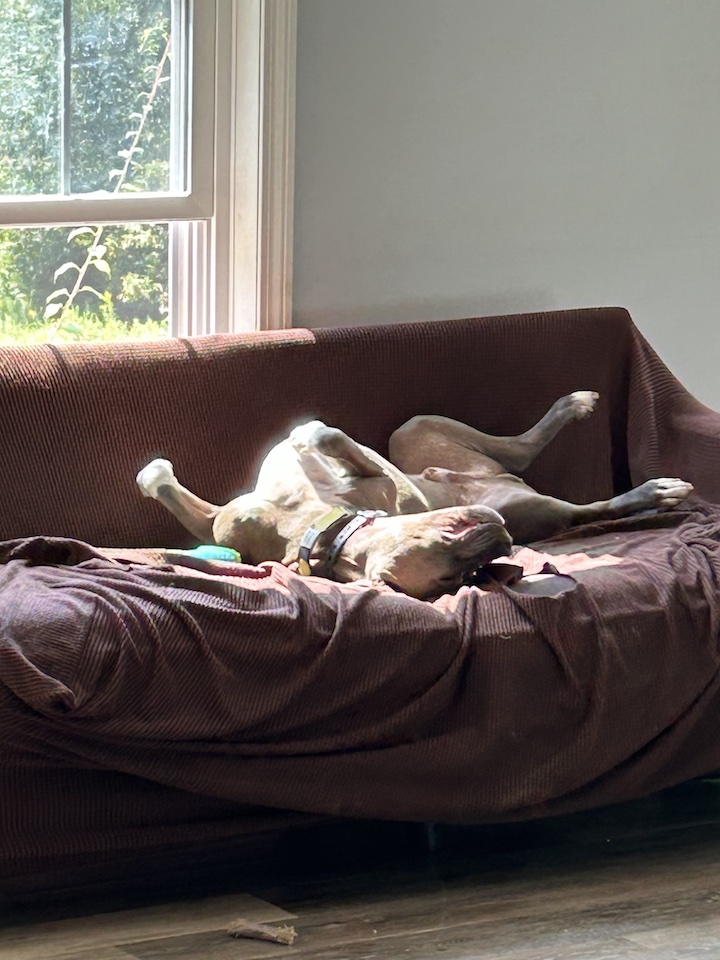
The world we live in expects way too much of domestic animals. We ask them to be something other than what they are because our world is human centered. We do this by asking them NOT to engage in behaviors that ARE who they are (dogs, cats, horses, etc…). Why? Because those behaviors don’t line up with human life.
Our pets are doing their best to understand our world, adapt to it, and to live in it. We humanize them. This is not terrible. In fact, it is often how we show love. And yes, they DO have all the emotions humans have, so it’s easy to do.
But… we have to remember they are still animals. They still have instincts, even though they are domestic. And since they are a different species than us, their needs are different. Expecting them to let go of the traits and the behaviors that are part of who they are is unfair. Yet, so many of us do it. Most of us do it to some degree.
Despite this, the amount of patience and forgiveness they continue to extend to us is unwavering. It’s mind blowing actually. No matter how many times YOU ask them to be something they aren’t, they still try. And most of the time they follow our rules that take away most of their natural behaviors. It’s quite sad actually.
The majority of pets in this world are misunderstood or held to unreasonable expectations. But, they are loved. Love isn’t enough. You owe it to your pet to allow them to be what they are. A dog, a cat, a horse, a bird, etc..)
Please take the time to read through this if you love your pet. It may just give you a different perspective and make you realize you might be expecting too much.
You may skip to the section relevant to the type of pets you have, but please take note at the end there is a paragraph that applies to ALL species of pets. Please visit that too!
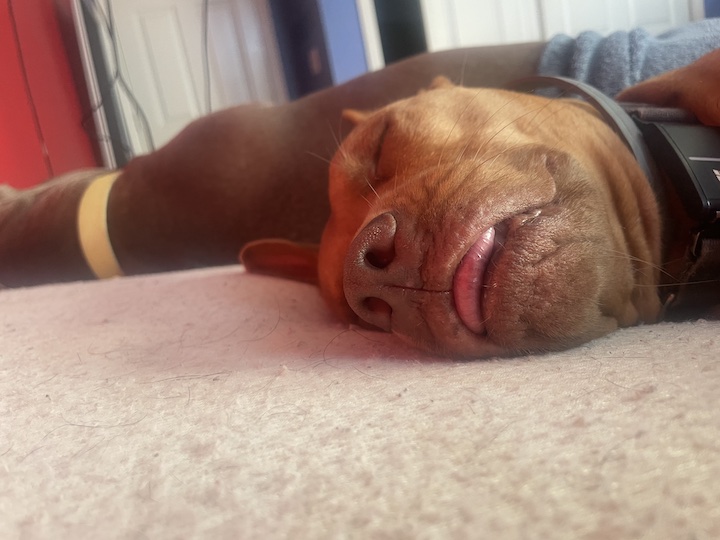
Let’s start wtih dogs because they are so popular.
Barking – We ask them not to bark, tell them to “shut up” at times. Their bark is their VOICE! Imagine if you could never talk. How frusteraed would you be? They bark for a reason. You may not know what that reason is but they have one. Maybe it is just to be heard! Maybe they are frusterated with always being told NOT to use your voice. Maybe, they are protecting or alerting you, the only way they know how. What may not seem like danger to you, can seem like danger to them. And when you shame them for doing so, that hurts their heart. When they bark, thank them. Please, I beg you, thank them. They are simply displaying DOG behaviors. They have a voice too.
Sniffing – We’ve all seen the memes. Sniffing is like reading email for dogs. It’s like a phone call or a text. It’s like browsing the internet. It’s how they gather information. They need to gather information to feel safe, secure, and enriched. If you always pull them away from tings they are sniffing they lose the ability to gather information. They will feel more confused, more afraid, and more unsure. They will feel like they are missing out on something. How many times do you search the internet, read a book, get a call or a text? You gather information for the vast majority of the day. Can you allow them the same? Don’t rush them on walks. Let them sniff. If you come home with something new, show them and let them sniff. If you don’t allow them to sniff, they feel isolated and frusterated. They need an expanded world, like we do. Too much of their lives are spent just in our house. They need MORE. And sniffing can expand their world. When you walk, and even just bringing new things into the house.
Pulling – Quite simply, dogs walk faster than us. That is why they pull. Why do we have to force them to walk slower? If you can’t let them off leash, YOU walk faster. Are they pulling because you never let them sniff? Let them sniff. They want to be in front to keep you safe. Pulling is not disobedienace, it’s dogs being dogs.
Now I understand they can be injured pulling (neck, windpipe, etc) so we do have to find modifications (harness, walk faster, or simply, let them walk in front of you).
Digging/Chewing – This is a natural behavior for dogs. It provides comfort, relaxation, and enruchment. It’s part of who they are, it’s that simple. If we do not give them the opportunity to do these things we are taking away their core behaviors. The behaviors that keep them mentally healthy and stimulated. Behaviors they find FUN and fufilling because it is in their DNA to do these things. We have domesticated them but they still hold onto species specific behaviors and that is what these are.
Emotions- How often do we ask dogs not to show emotions? Almost always. When dogs get excited, we ask them to calm down. That is how they show excitment! Jumping around, bouncing, running, etc.. It’s their expression of joy, happiness, and love.
When they growl or show teeth they are requesting space in THEIR language. They are asking kindly even though it seems they aren’t. To them, it IS kind. It is a warning. They are telling you they are NOT comfortable, they don’t feel safe, or they just need a break. When you are in those situations you can walk out and leave. Or, we’ve all done it, we snap… yell for a minute, slam a door, then feel better. That’s all dogs are doing! But they are doing it in the only way they know how. The way that has been bred into their species. Yet we ask them NOT to show their emotions. Imagine having to keep your inside? As a human, you’d eventually explode. Guess what… they do too.
These are just a few ways we ask dogs to be something other than who they are.
Now Cats….
Hunting – We ask domestic cats to live inside and this prevents them from engaging in the natural behavior of hunting. Something that provides them with mental and physical enrichment and exercise. When they aren’t allowed to hunt, they will bite and scratch humans, fight with other cats, or do anyhing they can to mimick hunting behavior. They don’t know any other way! Yes keeping them inside is safer, so I agree with that. But if you are going to do that, you must provide hunting simulation. Either by playing WITH them in hunting fashion or providing visual stalking enrishment (bird feeder, TV, etc..)
Scratching – Not only do humans expect cats NOT to scratch walls or furniture, sometimes they even declaw them! Scratching is a natural behavior for cats. It provides comfort, relaxation, and enruchment. It’s part of who they are, it’s that simple. It’s how they keep their area clean when they use the bathroom (burying it). It is a core part of being a cat. So please give them places to scratch. Their wellness depedns on it.
Hissing/Biting – This is their communication. It is how they tell you when they are uncomfortable, feel unsafe, or need space. It is like they ASKING you to leave them alone. Not if you don’t listen to their polite ask, YES they will probably bite harder, attack, etc… But in their defense they already warned you. If they are showig you they are not OK with something, it is unfair to ignore their request and force something on them. Asking them to keep their emotions inside is NOT healthy or fair.
Ok, how about horses?
Stalls – Horses are meant to walk and graze. Their digestion is dependent on movement. When we ask them to live in stalls we are taking away their bodies ability to digest properly. We are taking away their enrichment and exercise. Having a horse in a stall for more than a few hours is no different than having a dog in a crate. Why do horse people feel it’s different? It isn’t. Some horses live in stalls 22 hours a day. If anyone had a dog in a crate for 22 hours people would be up in arms about it. But it’s ok for horses? Why? The ratio of the size of the area compared to the size of the animal is the same. Horses need to be outside, moving, for as many hours as possible. They need it mentally and for their physical health.
Kicking/biting – This is the way they communicate that something hurts or is making them scared or uncomfortable. Can it hurt us? Yes, it can! But, if we choose to work with these big animals we are choosing to take that risk. If you punish them for showing you something hurts, they will stop showing you until it becomes so unbearable they explode. And they it will be a lot more dangerous for you.
Bucking/rearing – When we put horses under saddle we again are accepting the risk that their behavior may hurt us because of their size. But it is again unfair to punish them for displaying these behaviors (bucking, rearing, etc). Those behaviors are them telling us something horse, something is confusing, or it’s just too much pressure. They are communicating with us the only way they know how. So instead of punishing them, take a step back and be softer, fix your riding, allow them grace. THANK THEM for showing you something is not right. It is a privledge to ride a horse, they do not owe that to us. So if it is not 100% comfortable for them, YES they should tell us in the way they can. And YES, we should change something so it IS 100% comfortable for them. But humans have a hard time accepting they (the human) is the one making the mistake. Trust me… it’s almost always the human.
Now what about ALL the animals as a collective …
All of the animals I have mentioned are herd, pack, colony, etc.. They are bred to ive in groups of some sort. Yet, we keep horses alone. We ask dogs to be the only, cats to the be only. Imagine being the ONLY human in a group of dogs?? Ok wait, that might actually be pretty awesome!
Seriously though, imagine being the only human, in a group that speaks an entirely different language and lives an entirely different lifestyle. Could you be as patient as your pets are? Companionship of the same species is important for ALL living beings. (Yes I do know there are rare exceptions of animals that don’t get along with others).
But also, remember on the flip side, our animals do not have to like every human they meet, every dog they meet, every cat they meet, or every horse they meet. The same goes for goats, birds, rabbits, etc.. All animals have personality and energy and some won’t get along with each other. And that is ok! Just like you will have best friends, acquaintences, and others you don’t really like too much. Animals should be allowed the same opinions on others. They are individuals like us.
Now I am NOT an advocate of rehoming pets. So when household pets don’t get along, I do truly beleive it is the humans responsibility to accommodate. Have differen parts of the house for each animal, work through the dislike as much as possible, allow decompression and personal space. The paragraph about is more about not expecting your pet to be a social butterfly. Some will be, some won’t. Honor who they are.
Now let’s talk about animals and humans. We love them… oh do we love them! we want to kiss them, hold them, pat them. But sometimes they need space! Just like we do. If they are not in the mood to be kissed, hugged, petted, give them space. Don’t take it personally. It doesn’t mean they don’t love you. They just need quiet time now and then like we do. They don’t have to accept being kissed and hugged every waking moment. Sometimes they want peace and quiet. You know your pet. Show them love, but when they walk away because they have had enough, let them walk away. Don’t chase them. Don’t hold them forcing them to stay. Let them leave.
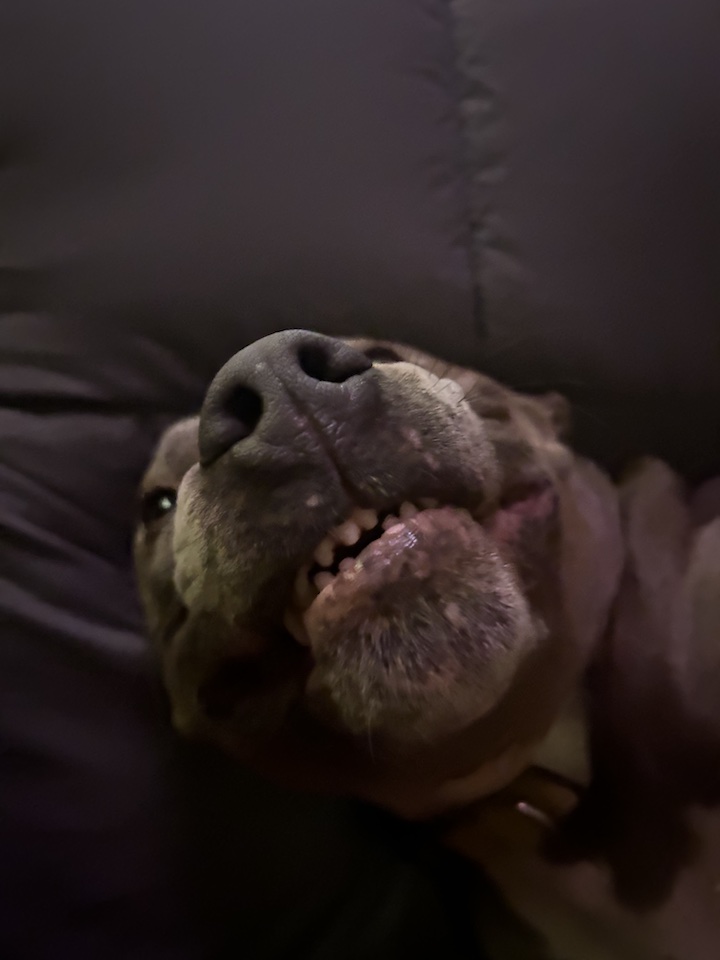
Honor their personality. Don’t try to change it. Honor their species. They are bred to be a certain way. Honor their forgiveness and patience. When you think about how challenging their world is, even in a home full of love, it truly gives you a different appreciation for how much they tolerate
My passion and my reason for doing this job is for these animals to be heard and understood in a world that asks so much for them. If you read this, you are trying. Thank you. Thank you for trying to learn how to understand them and create a better world for them.

